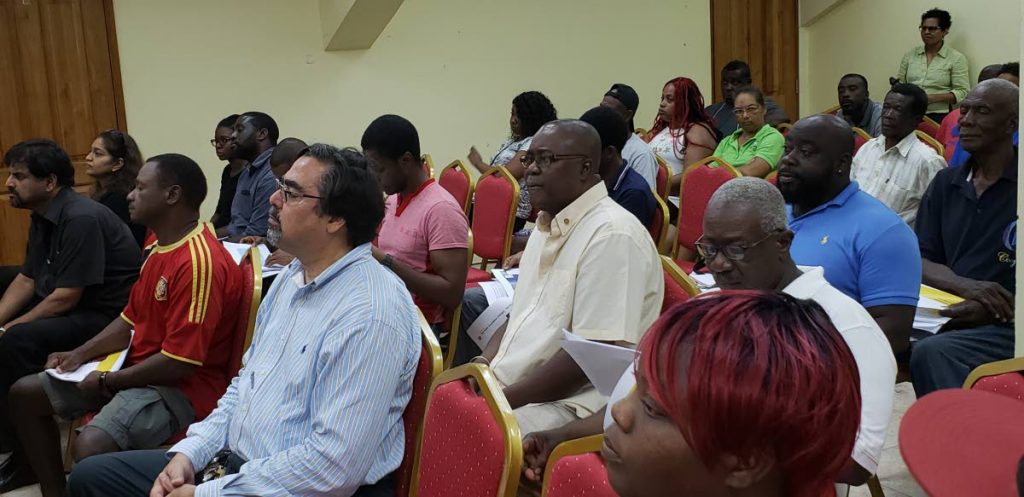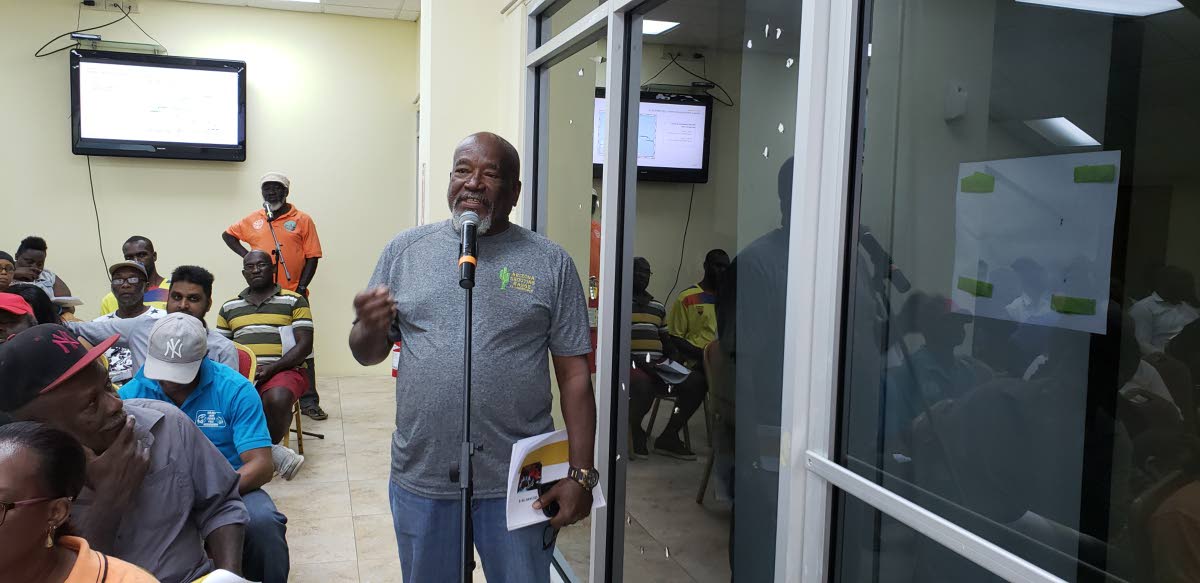What benefits for Tobago?

Fisherman Donald Miggins is a worried man. So too are fellow fishermen who are concerned that when multinational oil and gas company, Shell Trinidad and Tobago Limited, begins drilling in Tobago’s waters for gas come 2020, their livelihood would be at stake.
“I spend as long as two weeks at sea. My major problem is that I have 25 miles of service line on my vessel and when I release it in the northern section of the island, we normally drift. We drift down and in or down and out.
“It means that when you (Shell) start your operation, I would not be able to fish anymore, specifically using the longline, which is the main thing I use,” said Miggins.
Fitzroy Burnett, a fisherman of 40 years, said he always feels robbed when any kind of work is done in Tobago by oil companies.
“Since Petro Canada, the first oil company I know on record that came to Tobago, after they did what they had to do and left, to this present day, fishermen continue to suffer from seismic and whatever else they do.
“ATFA (All Tobago Fisherfolk Association) is the association that represents the fishermen in Tobago and I want anything happening to fishermen in Tobago, ATFA must be the one to pass their opinion.
“We have been suffering for far too long. We want to know what are the benefits of this project to fishermen in Tobago, we want to know what is the compensation to fishermen,” said Burnett.
“We the fishermen know… the oil companies come to Tobago waters and they do the search and it destroys the fishing ground. We the fishermen have to go miles now… further away and in this time where we know where the price of oil and gas is, it becomes more hard.
“Oil and gas companies are like bandits now. They link with the governing body and advantage us… all I want SHELL to do is have a heart. Sit and reason with ATFA… the fishermen would come here and make some hasty situation but don’t look at us as ignorant, it’s the pain in our heart,” he said.
Miggins and Burnet were among the fishermen and other Tobagonians who turned out on Tuesday night for a public consultation hosted by Shell on its subsea drilling programme offshore the North Coast of Trinidad and Tobago which could start at the end of 2019, once all approvals are in place.
Last month, Communications Minister Stuart Young announced that Government had successfully negotiated gas agreements with Atlantic’s Train One’s main shareholders, Shell and BPTT, including a new pricing formula that will “enhance the revenue of TT.”
Economist Vanus James noted in a recent Newsday Tobago article that Shell was about to start extracting gas from Block 22 and NCMA-4 and pipe the proceeds to the gas-processing facilities at Atlantic LNG in Trinidad. James said all of Block 22 and 96 per cent of NCMA-4 are squarely in Tobago waters. BHP Billiton also recently announced major gas finds in block TTDAA-14, which is also squarely in Tobago’s waters, he said.
The consultation was held at the Buccoo Integrated Facility where Shell’s officials provided information on the company’s plans to drill four subsea development wells within the North Coast Marine Area 4 and Block 22.
Shell’s Project Manager Marlon Mills, giving details of the project, said a high specification mobile offshore drilling unit and a semi-submersible drilling rig or a drill ship is being proposed for drilling the subsea development wells.
He said drilling was likely to start in the second quarter of 2020 and drilling and completion will take approximately 90 to 100 days for each well.
Shell’s Environment Advisor Gina Ramcharan said the company applied for a Certificate of Environmental Clearance for the project in June 2018 with the Environmental Management Agency (EMA) asking for more information. Part of the CEC process is to engage with various aspects of community and social impact which is to be provided at public consultations.
Ramcharan said that in October it was determined that an Environmental Impact Assessment (EIA) was necessary.
Team Lead Consultant, Geophysicist Vishram Rambaran, said that there would be no seismic acquisition since these were completed by Centrica and Petro Canada previously.
Participants at the consultation also wanted to how Tobago would benefit from this project, whether from income earned, through employment or from Shell investing in projects on the island.
“We need to find a way where Tobago tangibly benefits from projects of this nature, said Anthony Hector, in his contribution.
“Initially, I was thinking that we in Tobago can demand a percentage of what is earned to be spent directly here and I was also thinking maybe, as a corporate entity. you could choose a project and support it from beginning.”
In response Shell’s General Manager Health, Safety, Security and Environment, Allison Dupigny-Auguste, noted that “the contract we have is with the Government of Trinidad and Tobago. What we can see, is where we invest through our social investment programmes.”
Marian MacFarlane-Trim asked about employment opportunities.
“What about the young people of Tobago heritage who are petroleum engineers and are aptly qualified, would there be opportunities for employment in this project?” she asked.
Brendon Gray, representing the Bella Forma Golf Club, called on Shell to consider engagement with social activities on the island.
“We have a golf club in which our young people need support in golf equipment, so we would ask you to be a part of that,” he said.


Comments
"What benefits for Tobago?"